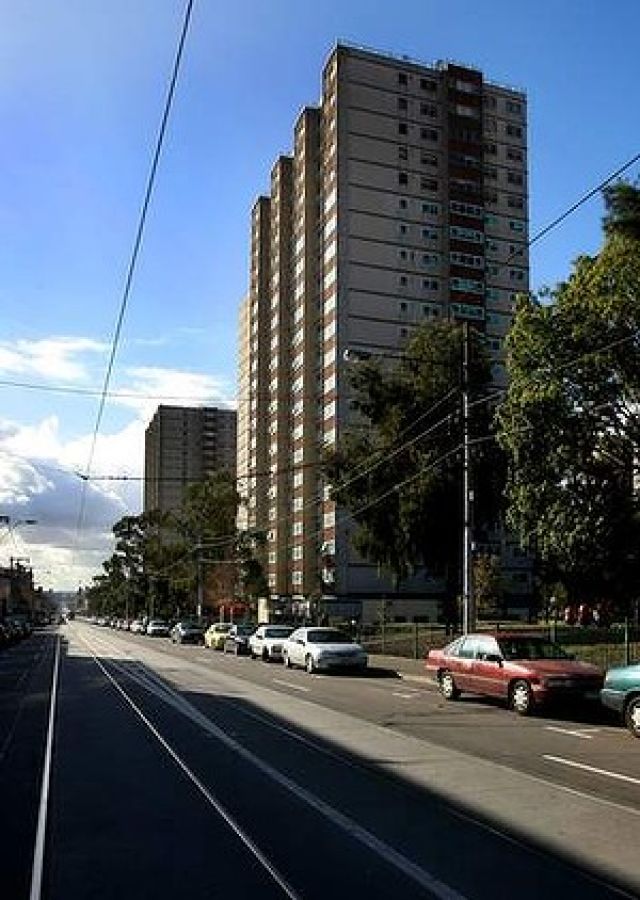
A packed-out meeting of tenants from Fitzroy's Atherton Gardens public housing estate established a resident’s committee to lead a campaign against the government’s plans to sell off open space and playgrounds to developers.
The meeting was initiated by Socialist Party Yarra councillor Steve Jolly, and was also attended by nearby private residents, including members of the local African, Chinese and Vietnamese communities, construction union members, Greens MP Adam Bandt and an ALP councillor.
Public housing in Victoria is heading for serious redevelopment with the demolition of open spaces such as parks and play grounds to make way for private housing, offices and retail strips.
According to the Victorian Government, this plan will ‘diversify’ the sites in Fitzroy, Richmond and Prahran through a 50/50 mix of public/private dwellings, remove the stigma of poverty and open new business and job opportunities.
The government’s claims have been questioned by an independent report headed by the University of Melbourne’s Dr Kate Shaw. The report was commissioned by the Department of Human Services (DHS) to examine the recent redevelopment of the Kensington public housing estate and advise on these future developments.
The report questions whether the plan for a mix of private and public housing is beneficial to the community.
The DHS received the report June 2012 but will not be releasing it, stating it is currently unfinished and inconclusive. This report questioned the social mix of public and private residences, as the public houses were already surrounded by private properties and socialising with neighbours was usually done through community events.
Shaw told The Age on January 25 that: “It's not clear how bringing more private residences onto an estate benefits public tenants. If it results in a loss of public housing stock or quality open space, then there are serious disadvantages to this strategy. There was a substantial loss of public housing from the Kensington estate.''
The redevelopment proposal allows for the potential demolition of the 1960s high-rises with an additional 800 private residences at the Fitzroy site and 913 private residences at the North Richmond site. The effect of this would be higher rents, a reduction in the amount of time residents are able to live in public houses and the privatisation of building management services.
About 2000 homes, retail areas and office spaces will stand through the removal of the park areas around the flats as well as most of the car parking facilities and playgrounds, over populating the area but not supplying any new public housing stock.
Yarra Councillor Stephen Jolly has stated he has serious concerns with the lack of communication about these redevelopments from the government to the residents and the community being affected by these changes.
Jolly told Green Left Weekly “the state government is sacrificing inner city public housing tenants. The government thinks they aren’t capable of fighting.” He pointed out the “open space” that the government wants to develop for private housing would strip away the “public tenants’ back yard”.
Jolly also said that the open space around the estates is the biggest parkland in Fitzroy. Local residents living near the estate also use that public space. “We don’t buy the government’s argument about social inclusion. I predict a big struggle.”
Building unions are being urged not to work on the redevelopment sites and to impose a “green-ban” to protect the parks. A number of residents are signing petitions and voicing their concerns with the privatisation redevelopments.
[A community meeting to organise a campaign to protect public housing and open spaces will be held on February 7, 6pm, at the Community Room, 110 Elizabeth Street, Richmond.]